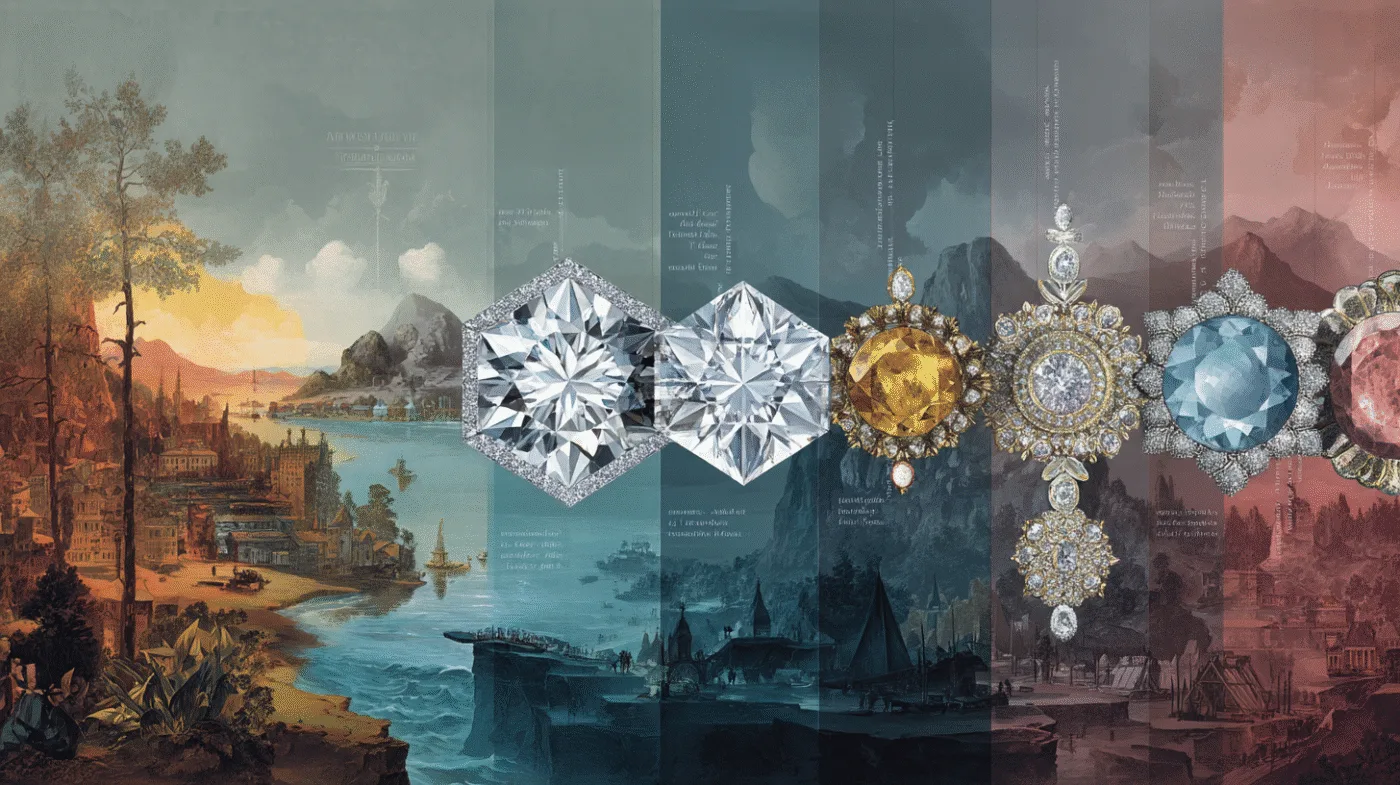Understanding the History of Diamonds
The Ancient Beginnings
Diamonds have fascinated humanity for thousands of years. Their journey begins in ancient India, where they were first mined. Known as the “king of gems,” diamonds were believed to possess mystical powers, offering protection and strength to their wearers.
Symbol of Power and Wealth
Throughout history, diamonds have been associated with royalty and the elite. In ancient Rome, warriors adorned themselves with diamonds for their supposed protective qualities. During the Middle Ages, these precious stones became symbols of power and affluence, worn by kings and queens to showcase their wealth.
The Rise of Diamond Cutting
The art of diamond cutting began in the 14th century, leading to the creation of the iconic rose cut. This innovation allowed diamonds to shine brighter than ever before, elevating their status in society. By the 19th century, the brilliant cut was developed, revolutionizing the way diamonds were perceived and appreciated.
Diamonds in Modern Culture
Today, diamonds symbolize love and commitment, especially in the form of engagement rings. The introduction of the marketing campaign “A diamond is forever” in the mid-20th century solidified their status as the ultimate symbol of romance. Additionally, diamonds have become a staple in fashion, gracing runways and red carpets around the world.
Ethical Considerations
As the demand for diamonds has grown, so have concerns regarding their ethical sourcing. The ‘blood diamond’ controversy has sparked a global movement towards ensuring that diamonds are conflict-free and sourced responsibly. This has led to the rise of lab-grown diamonds, offering an ethical alternative for consumers.
Conclusion
The history of diamonds is as multifaceted as the gems themselves. From their ancient origins to their modern significance, diamonds continue to capture the hearts and imaginations of people around the globe. Whether as symbols of love, power, or ethical considerations, diamonds hold a unique place in human history.
For more info or to shop, visit www.nazojewelry.com


